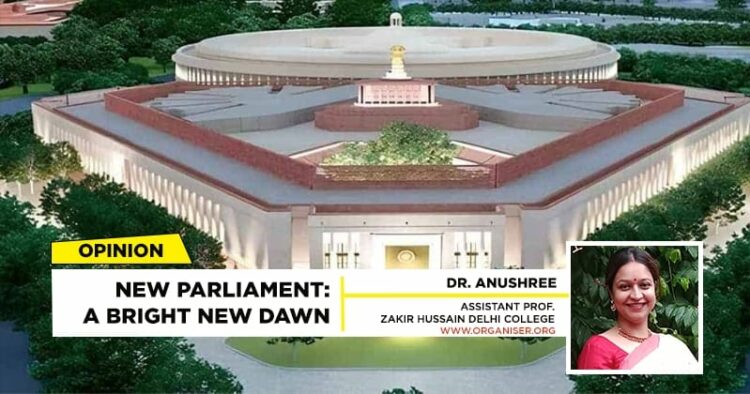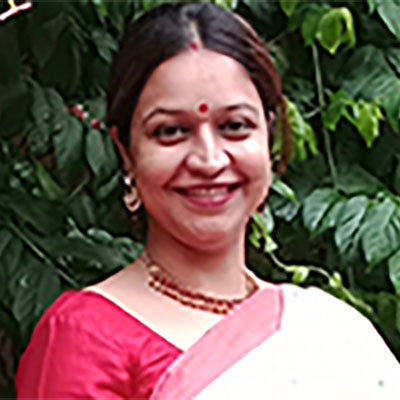The inauguration of the new parliament building marks a new dawn in post-Independent India. As opposed to the old building, a legacy of the colonial-era, the new structure has been indigenously designed with state-of-art technology in Atmanirbhar bharat. The installation of the historic Sengol (scepter) and phad paintings in the new parliament building symbolises the respect for India’s rich cultural heritage and traditional values. However, it is unfortunate that rather than celebrating this momentous occasion, many political parties led by the Indian National Congress are indulging in political gimmick by boycotting the inauguration ceremony.
Those boycotting it have claimed that not inviting the president to inaugurate the new building of the central legislature amounts to constitutional impropriety. They cite certain articles of the constitution to suggest that since the president is an integral part of the parliament, she should have inaugurated the parliament building. They fail to realize that India is a parliamentary democracy with executive power being shared between the President who is the titular head and the Prime Minister who heads the government. Prime minister is the face/leader of the popularly elected government and parliament houses the representatives of the people.
There is no constitutional provision that suggests that president alone can perform such rituals, nor do we have such conventions. We have had instances in the past when prime ministers and not the president participated in these events. In 1975, erstwhile PM Indira Gandhi inaugurated the Parliament annexe and a few years later in 1987, PM Rajiv Gandhi inaugurated its library. There have been a few more instances when PM Manmohan Singh accompanied by UPA Chairperson Sonia Gandhi had inaugurated Tamil Nadu and Manipur Assembly complexes in 2010 and 2011 respectively. Another example comes from Bihar when chief minister Nitish Kumar inaugurated the Central Hall of the legislative assembly.
One must not forget that in 75 years of independence, no political party could think of nominating an Adivasi woman for election to the highest constitutional office. Assuming office in July 2022 as the 15th President of India, Ms Murmu became the first ever president to inaugurate the ‘Mysuru Dasara’ a 10-day state festival in Karnataka. It was Ms Murmu who launched the government program ‘Pradhanmantri TB mukt Bharat’ for Tuberculosis eradication in September 2022. While president is the ceremonial head in India, her position is not reduced/limited to certain ceremonies like the inauguration of institutions/structures. She still holds the power to summon and prorogue the houses of Parliament and deliver address to the Parliament. Her stature and constitutional powers remain the same even after 28 May.
Congress president Mallikarjun Kharge recently tweeted that the office of president has been reduced to tokenism under the BJP-RSS Government. However, the Congress leader seems to have forgotten the constitutional impropriety being done during the emergency years (June 1975-March 1977). The declaration of emergency in the middle of the night on 26 June 1975 without consulting cabinet members was a blatant violation of the ethos of the constitution. Historian Gyan Prakash in his ‘Emergency Chronicles: Indira Gandhi and Democracy’s Turning point’ writes that the erstwhile president Fakhruddin Ali Ahmed had sought the opinion of his secretary K Balachandran on the constitutionality of the proposed proclamation on the night of 25 June 1975. The latter called the proposal as constitutionally irrelevant but President Ahmed’s reservations about the order became inconsequential as he was made to sign it. He further writes, “Then the president swallowed a tranquilizer and went to bed”. Furthermore, the rift between erstwhile prime minister Rajiv Gandhi and president Giani Zail Singh is well-known. The latter had complained that he was not consulted on vital matters by Rajiv Gandhi Government. In fact, the prime minister on many occasions deputed Vice President R Venkataraman instead of president Singh for overseas ceremonial visits. Many foreign invitations to the president awaited clearance from the Government. These are a few instances to prove that the longest ruling political dispensation led by the Congress has time and again displayed insensitivity to the constitutional office of the president.
Parliament is the temple of democracy and its complex must reflect the richness of its culture and celebrate the legacy of its constitution makers not just from one political dynasty but also across the political spectrum. The new building with energy-efficient and earth-quake resistant construction accommodates symbols of national significance, vibrancy of her rich culture and history. The fact that its inauguration coincides with the birth anniversary of freedom fighter Veer Damodar Savarkar should be taken with pride as a tribute to the man who gave a nationalist turn to the revolt of 1857 as the ‘first war of independence in India’. The Opposition parties should not obstruct moves to break free from the symbols of colonial legacy, just for the sake of opposing every move of the government. A constructive role played by the parties alone will make democracy truly meaningful in the land that boasts of the philosophy of vasudhev kutumbkam.




















Comments